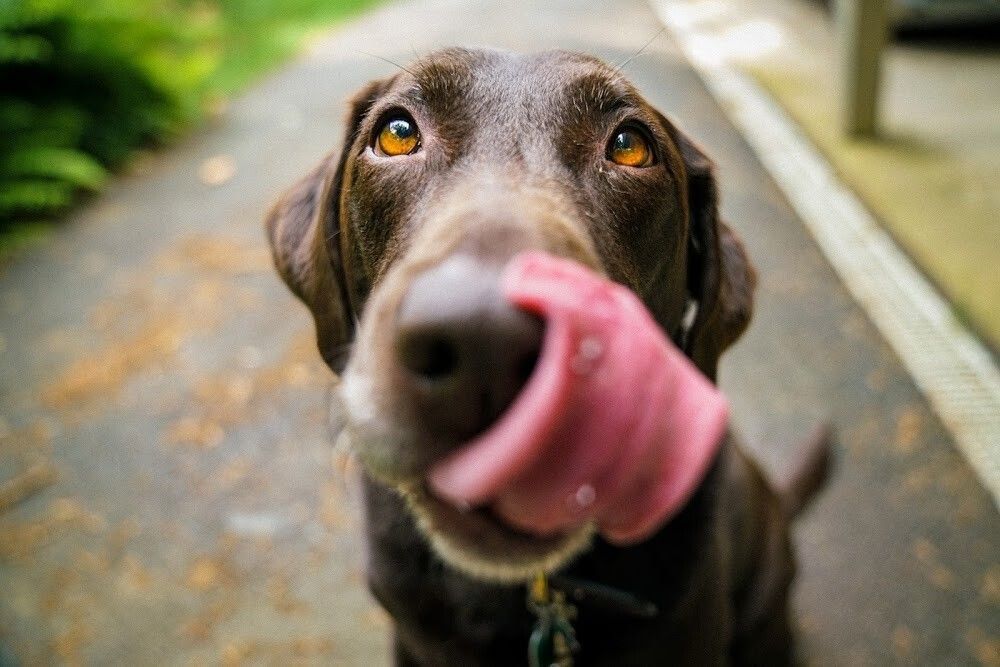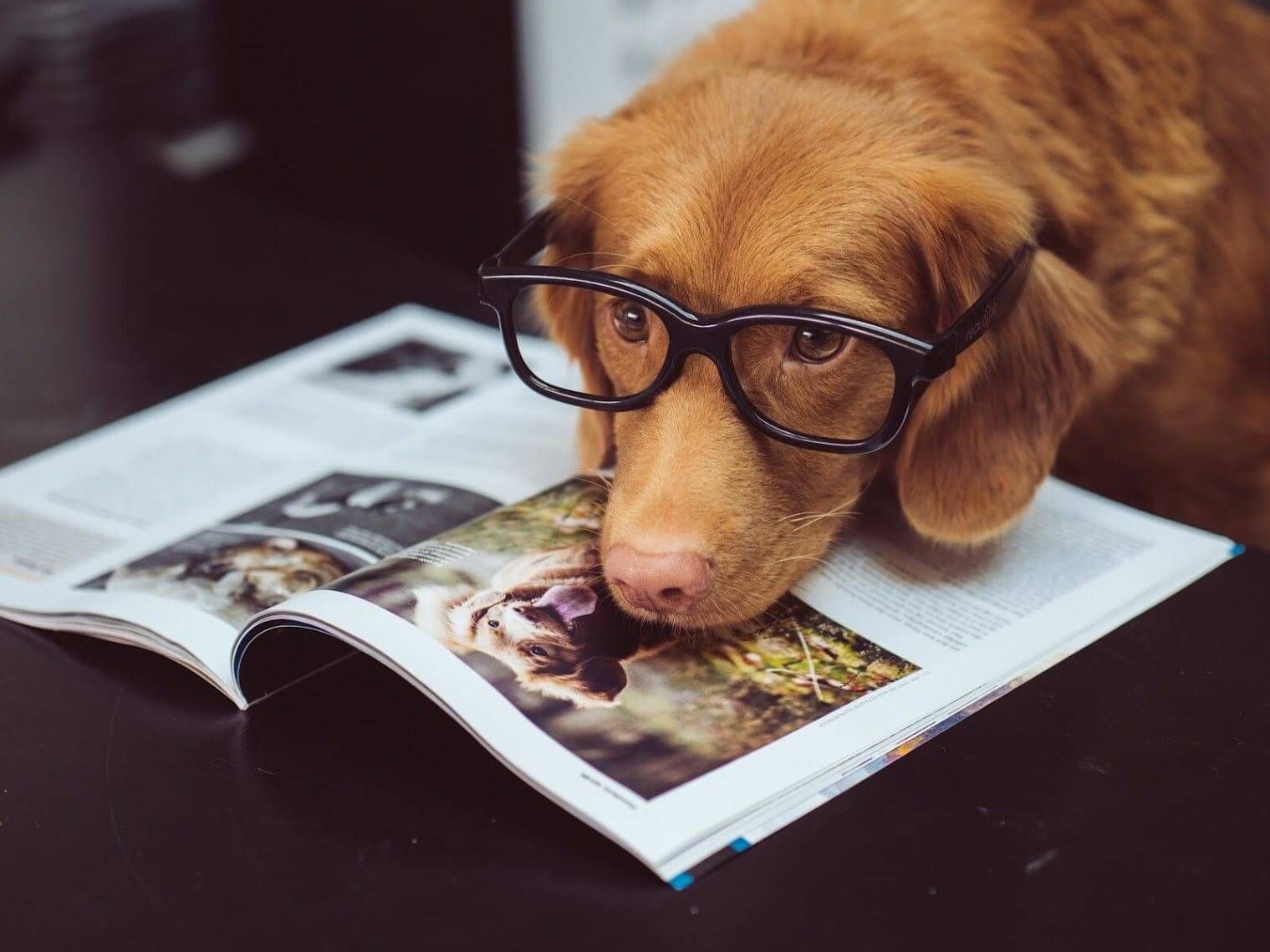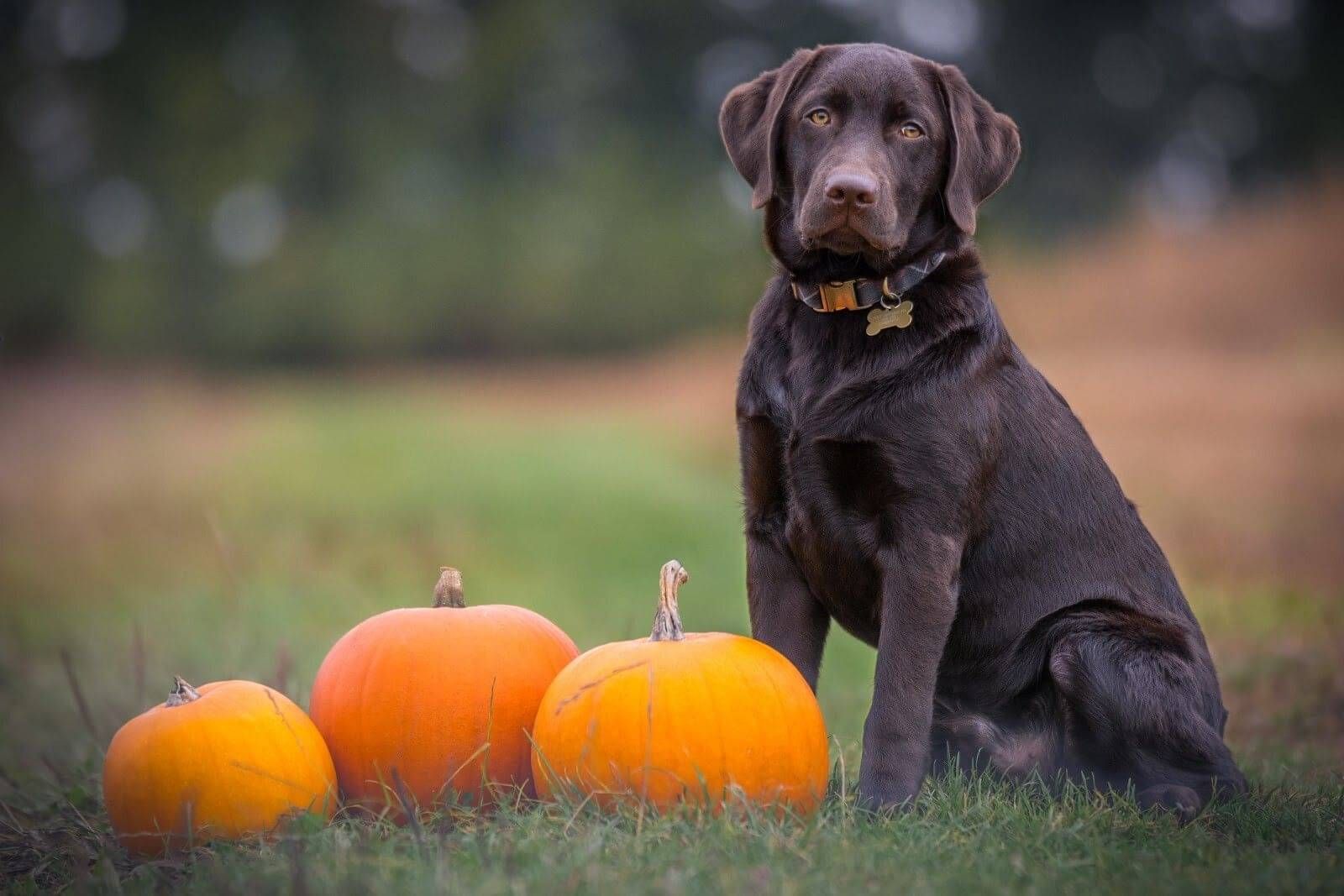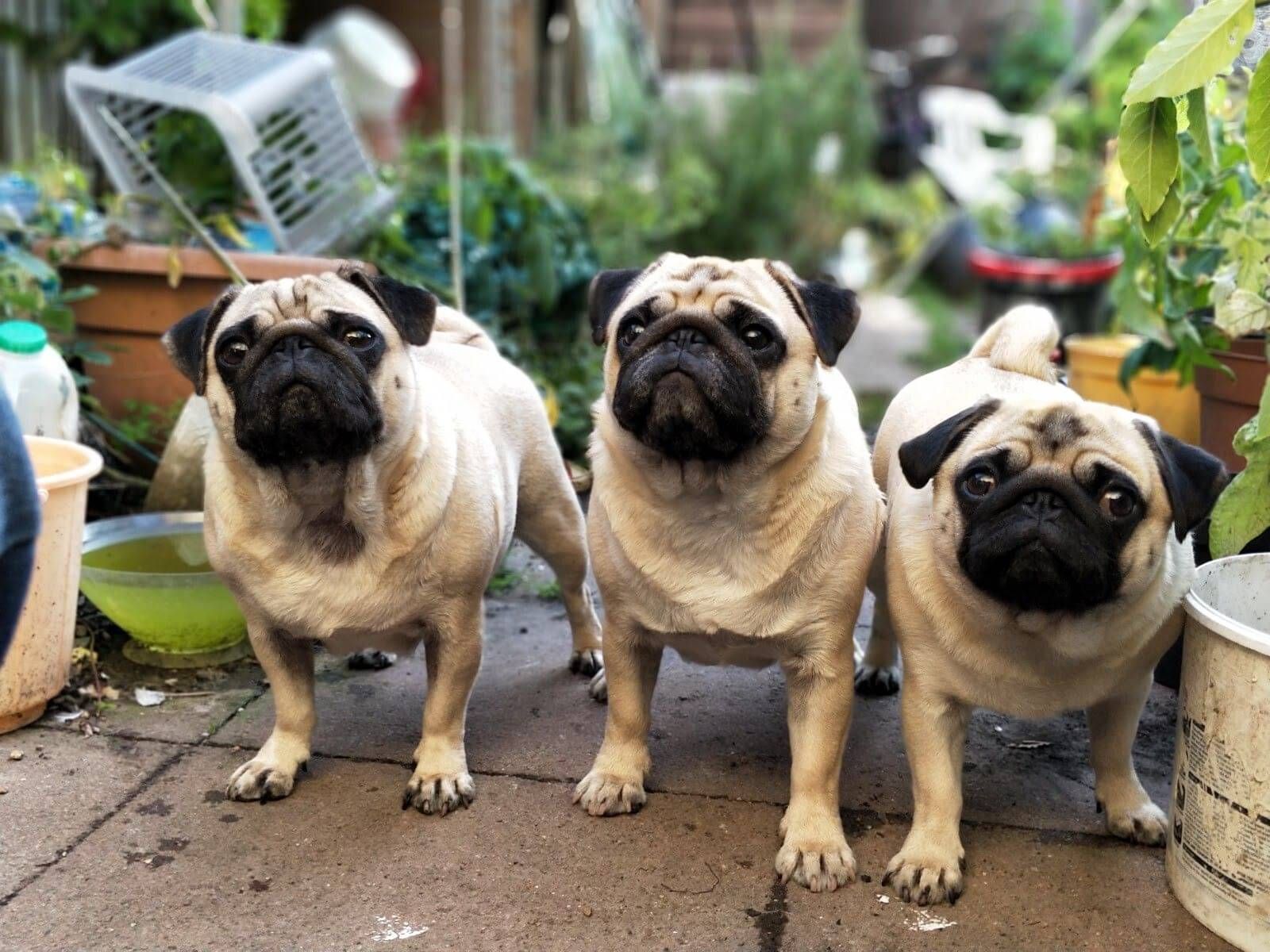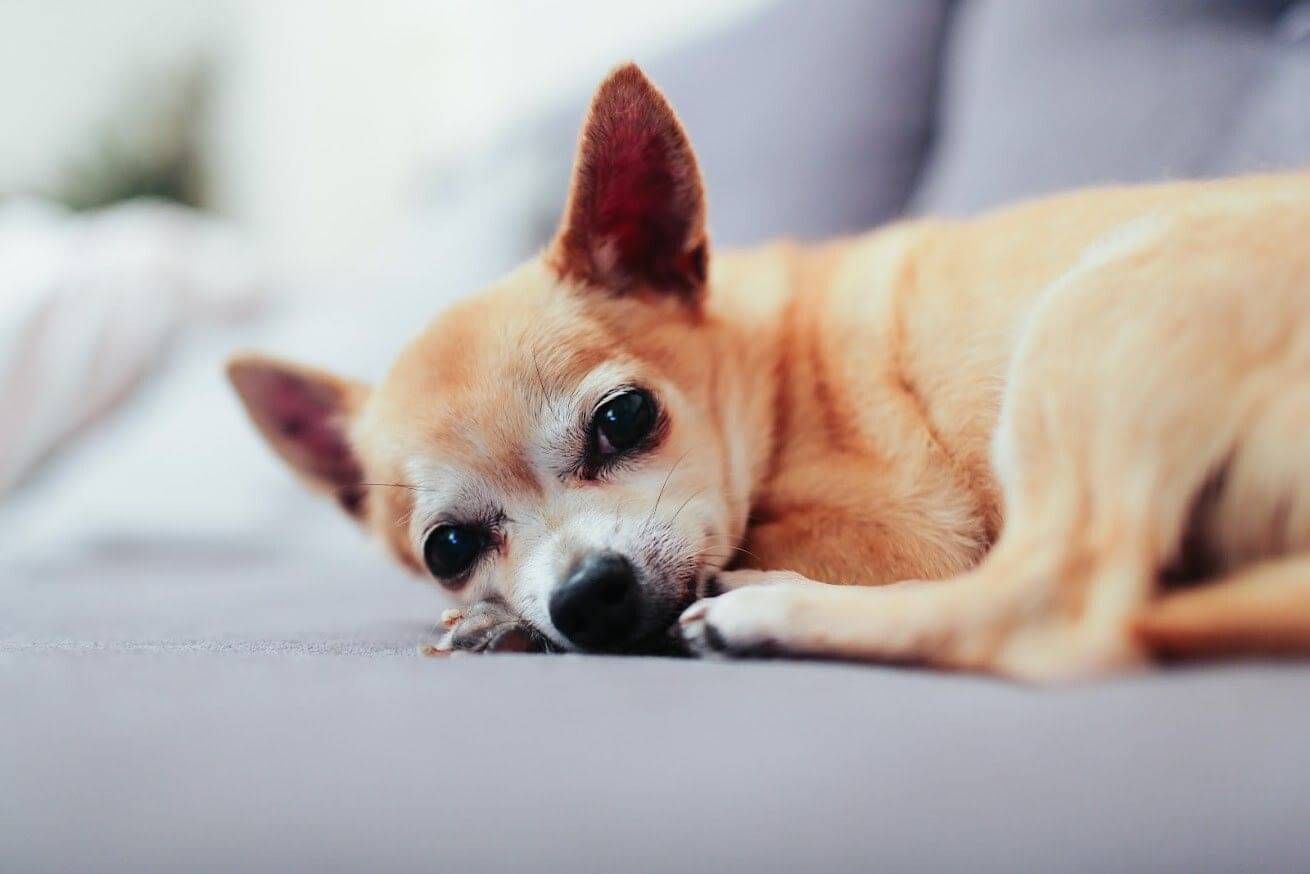EATING POO
Coprophagia or poo eating can be a serious problem behaviour. We say problem behaviour, because it is usually more of a problem for us, not always for the dog.
Why do dogs do it?
Dogs eat poop, it’s just what some do. They are scavengers and will eat just about anything. According to a 2012 study by the American Veterinary Society of Animal Behaviour, dogs eating poop is a reflection of their ancestral instinct to protect other pack members from the parasites found in poop that's dropped in their den or resting areas (Coates 2013).
Sometimes puppies will get confused by sniffing their mother's breath after she cleans them and detecting faecal matter on it. This "appetite inoculation" can set a puppy up to develop a habit of eating poop (Coates 2013).
Medical Causes
Coprophagia is sometimes associated with disease, so always make sure your dog has a thorough veterinary exam. Medical problems such as pancreatic insufficiency or enzyme deficiency, intestinal malabsorption and GI parasites are common reasons that can prompt a dog to eat his own poop.
Nutritional Causes
Although it was once thought that dietary deficiencies were a cause of coprophagia, most studies to date fail to show a clear or consistent correspondence between dietary deficiency and the unwanted behaviour (McDonald n.d.).
One theory is that coprophagia may be related to the action of digestive enzymes. Perhaps the pancreas isn't producing enough insulin or other enzymes, for example, or maybe the balance of good-to-bad gut bacteria is out of whack. Many dogs may start eating poop because their bodies are trying to correct an insufficiency or imbalance in the digestive process. A dog may also eat its own faeces or those of another dog because they contain undigested nutrients.
Others claim that dogs may actually be trying to consume the digestive enzymes themselves, not the undigested food. There is also the suggestion of adding a meat tenderizer to the dog's meals to stop coprophagia. Meat tenderizers contain an enzyme called papain that helps to more fully digest the meal, so this tends to support the notion that it is enzymes that may be lacking, not nutrients themselves. Papain is also contained in pineapple and pumpkin.
Most poo eating dogs limit themselves to fresh faeces (less than two days old), probably because in addition to digestive enzymes, it also contains the high levels of microbes necessary to regenerate beneficial bacteria in the gut (Hampl 2017).
Be sure that your dog is on a fully balanced high quality diet. Fresh (raw) foods can be more bioavailable and are also more species appropriate. Additional fresh foods can be very beneficial when added to a dry food diet. Some other additions that may assist are listed below.
Additions to the Diet That May Help
Digestive enzymes
There has been some success from simply adding a digestive enzyme supplement to the coprophagic dog's diet, and/or the diet of other dogs in the household.
Adding Fresh Pineapple
Fresh pineapple contains an enzyme called Bromelain which breaks down proteins, and is often used in meat tenderizers. Use fresh pineapple only, as the canning process destroys bromelain.
More Fibre
Adding fibre (e.g. carrots, green beans, and broccoli) to the diet may alter the texture and smell of the faeces through natural fermentation to make it less attractive to dogs (Lindsay 2005). Fresh vegetables also have other important benefits to a dog’s diet. Feeding your pet a diet containing human-grade protein, probiotics and supplemental digestive enzymes can sometimes curb the urge to find gross sources of free enzymes around the yard or in the litter box (Becker 2011).
Other additions
More information can be found on the Holistic Animal Remedies website.
Behavioural Causes - Anxiety and Attention Seeking
Many cases of coprophagia are caused by the owner's unintentional reinforcement of the behaviour (McDonald n.d.). Also, some dogs will thrive on the ‘negative’ attention that comes from eating poo.
Research also suggests dogs that are punished for inappropriate elimination can convince themselves pooping itself is bad, so they hide the evidence by eating it.
Boredom and stress are definitely contributing factors in many cases of coprophagia (McDonald n.d.).
Another possible reason why dogs eat poop is they may be dealing with an environmental stress or behavioural trigger. Things like isolation, restrictive confinement, living with other sick or elderly dogs, and anxiety, can all trigger poop-eating behaviour in dogs (Coates 2013).
Ensure your dog has balanced physical and mental exercise. Enrichment feeding may help! Contact us for more information and assistance.
Prevention and Management
Strict management for prevention is the key. The more opportunity a dog has to practice eating poo, the more they are reinforced (poo eating is a naturally reinforcing behaviour!).
Toileting Routine
Have set feeding times for your dog and toilet them straight after feeding. Pick up poo straight away!
Training
Taking Outside on Lead
Particularly at night (where it is easier for dogs to slip away from you)
Leave it Cue
Teach a strong leave it cue.
Sit/Stay Cue
While you are moving to pick up your dog’s poo, put them in a sit stay. Reward highly!
Eating Other Species Poo
Some dogs find it highly rewarding (possibly nutritionally, but also maybe it’s tasty?) to eat other species poo. Since the faeces of other animals are a good source of digestive enzymes, dogs with a deficiency will sometimes ingest enzyme-rich poop. Rabbit poo for example, has very high levels of B Vitamins and is a very rich source of enzymes.
Go Easy
Yes it is frustrating (and disgusting) when your dog eats poo, but remember that Coprophagia can seriously threaten a dog owner bond as a result of owner frustration/displeasure, so treat it with sensitivity.
